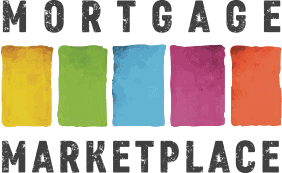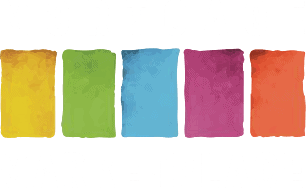Debt Consolidation Remortgage
- Whole of market mortgage advice
- We'll find the best solution for your personal circumstances
- Access to competitive rates and exclusive products
- Friendly, knowledgeable advisers regulated by the FCA
Get in touch today to discuss your needs and goals.
Read, listen or watch below to learn more.
Home » Remortgage » Debt Consolidation Remortgage

Debt Consolidation Remortgage
We’re talking about remortgaging for debt consolidation, with Kevin Spear of Mortgage Marketplace.
What is a consolidation remortgage?
A consolidation remortgage usually refers to debt consolidation. It is short term debt such as a credit card, personal loan, secured loan or something of that nature. We’re taking that sum of money and putting it on to a long term residential mortgage. The objective is to reduce the client’s monthly outgoings.
Is consolidating a good idea?
As a strategy, debt consolidation can be a very good thing to do, particularly for some people such as a young family with lots of outgoings and a static income. It’s not without its caveats and risks. But in terms of managing your budget and drawing a line under debt, it can be quite a significant piece of financial planning.
What’s the process for remortgaging for debt consolidation?
It’s exactly the same as a normal mortgage – like when you purchase a home or you remortgage for any other purpose. We’ll look at your income and verify it, by way of pay slips or, if you’re self employed, with tax documents.
We also look at the value of the property. Debt consolidation remortgages go up to a certain maximum ‘Loan to Value’. That is often about 80%, above which interest rates get quite high.
So if we’re going to do a debt consolidation remortgage, we try and keep it below that level. To assess someone’s situation, we will want documentation proving your income and details of the debt you’re repaying. We’ll need to know why and how it accrued and also your household budget. We want to prove to the lender that it’s going to make a significant difference to someone’s monthly budget, and that moving short term debt onto the mortgage is a worthwhile thing to do.
Speak To An Expert
We can assist you with the whole mortgage process, from buying your first home, to remortgaging, moving home, equity release, buy to let, specialist mortgages and more.
What debt do mortgage lenders consider? Can you remortgage with credit card debt?
Pretty much any debt can be remortgaged – although tax debt and business debt are a little more specialist. Some lenders are not very keen on gambling debt. But typically, credit cards, personal loans, car loans…. Those are commonplace transactions that we can assist with.
Can you consolidate debt twice?
That’s quite a tricky one. From an advice perspective, we would look at a second debt consolidation very carefully because it begs the question, ‘how did this happen again’?
What you don’t want is serial debt consolidation on someone’s home because you’re effectively eroding equity time and time again.
A short term debt is usually over and paid within three, four or five years. But a mortgage debt is often going to go on for 25 years and beyond. So the interest burden on the consolidated debt is quite high over the entire term of the mortgage.
So we tend not to want to do it twice. Moreover, when the lenders look at it, they’re even more cautious than us as brokers. You would find there are more significant hoops to jump through from a credit scoring perspective.
It does depend on the timing. If there were 10 years between one and the next, that’s not so much of an issue. If it’s a couple of years, then it’s probably going to be quite difficult.
What else should we consider with remortgaging for debt consolidation?
It’s worth saying that whilst we’re cautious about it from an advice perspective, and lenders are about lending the money, this is a significant market. That’s because there is a significant need – a lot of people need help managing their debt, especially in the current economic climate.
Provided it’s done cautiously, with an eye on how finances will be managed in future, it can be a good thing. It can make a massive difference to take away that short term debt, as it can be very costly each month.
As mentioned earlier, to a young family it can be the difference between living well and only just making it through each month. So debt consolidation definitely has its place and we don’t shy away from it – and clients shouldn’t shy away from asking.
Done properly, it’s very effective. But our overarching advice would be: do it once, do it properly and be disciplined thereafter if you can.
Think carefully before securing other debts against your home.
You may have to pay an early repayment charge to your existing lender if you remortgage.
Your home may be repossessed if you do not keep up with your mortgage repayments.
Frequently Asked Questions
Call us today to discuss your borrowing potential and eligibility.
Typically, the mortgage process will take 2-6 weeks to reach approval.
A mortgage offer is usually valid for 6 months.
Please be aware, the process is currently taking longer due to Covid-19. Please see question ‘How has Covid-19 affected the mortgage market?’.
Whilst you are not required to take out a life cover, our job is to ensure your mortgage is affordable, no matter what. It may not be nice to talk about, but if something were to happen to you, you want to know your family and investment are safe.
We will advise on all the options available and provide a no obligation quote from our partner providers.
As with all insurance policies, conditions and exclusions will apply.
Useful Links
Why use us?
- Whole of market advice
- Mortgage agreed in principal in as little as two hours
- Access to competitive mortgage products
- Free Initial Consultation
- We're a 'Climate Positive Workforce' - click to find out more





